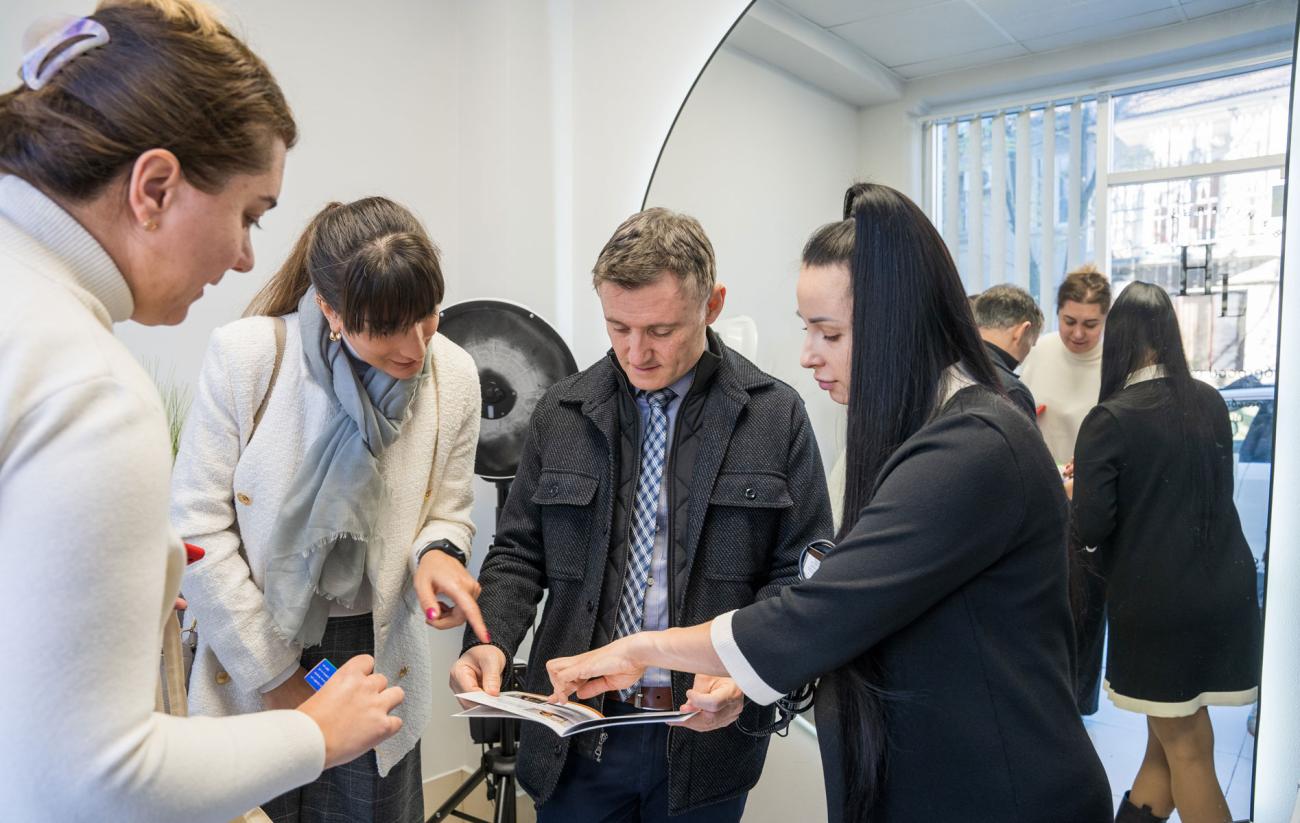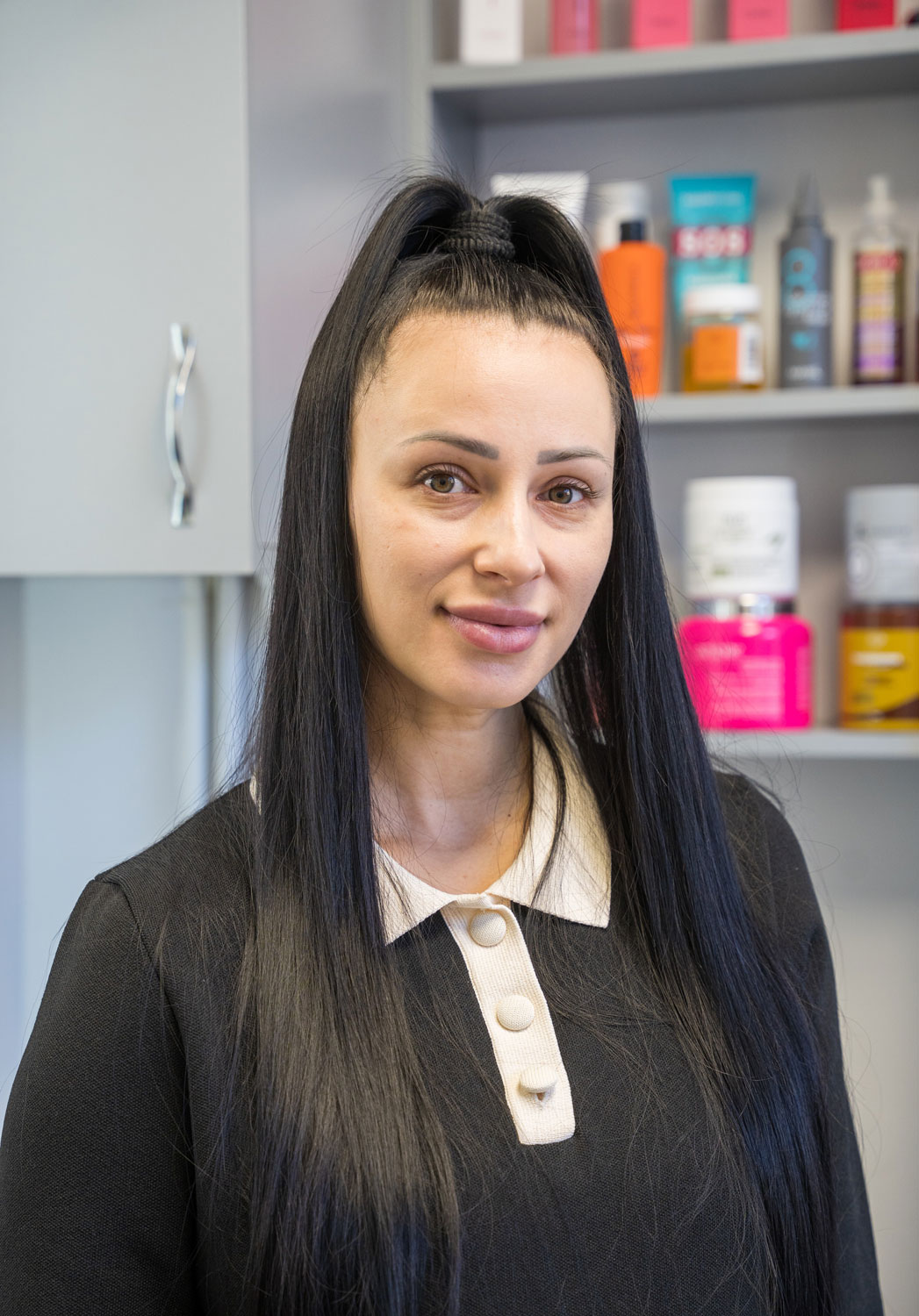A New Beginning: Ukrainian Women Rebuild Their Lives in Georgia with UN Support

Since Russia's full-scale invasion of Ukraine in February 2022, millions of Ukrainians have fled their homeland in search of safety. Approximately 245,000 have sought refuge in Georgia, with around 26,600 currently residing in the country. The transition to life in a foreign land presents numerous challenges, particularly for female-headed households, which make up a significant portion of the refugee population—62 per cent of those displaced are women.
The United Nations works with several partners to develop a comprehensive approach to support refugees, including Ukrainian nationals whose lives have been disrupted by the conflict. This support ensures their safety and facilitates their integration into host communities.
While leading the work of the UN in Georgia, I visited Batumi and Kutaisi, two cities in Western Georgia with a large Ukrainian community. During this trip, the story of Snizhana Chebanenko, a Ukrainian woman who settled in the area after fleeing the conflict in her country, inspired me. Through Snizhana’s experiences, I witnessed firsthand how employment opportunities provided by the UN have become a vital source of income during this challenging period, contributing hope for the future.
Snizhana fled her hometown in eastern Ukraine in early 2022, leaving behind not only her home but also her dreams. Upon arriving in Kutaisi with her child, she faced the daunting challenge of starting anew while grappling with the trauma of war. Overwhelmed by uncertainty and limited resources, she struggled to find her footing.
Snizhana's journey took a positive turn when she received support from the United Nations in the form of a grant from UNDP and CARE Caucasus. She leveraged this opportunity to open Hair Lab Studio, a beauty salon in Kutaisi.
Programmes offering microfinance and business mentoring have been established to support Ukrainian entrepreneurs in starting their own businesses. Grants ranging from $5,000 to $8,000 have been awarded to help small enterprises to simulate economic recovery, boost access to decent work, and increase income generation for Ukrainian nationals in Georgia. Additionally, refugees receive training to enhance their business skills, enabling them to create job opportunities within their communities.
This grant support is part of a broader $1.62 million initiative funded by the Government of Germany and implemented by UNDP in collaboration with Georgian authorities, civil society organizations, and UNHCR. The initiative aims to strengthen rule-of-law institutions, improve access to justice, and ensure the socio-economic resilience of disadvantaged communities in Georgia, including refugees, such as those from Ukraine.
This support has led to the establishment of over 39 businesses by Ukrainian entrepreneurs, predominantly women. These enterprises not only provide financial independence but also make a significant contribution to the local economy by creating sustainable employment opportunities. When I spoke to Snizhana, she shared how her small business has granted her financial independence and helped her cope with past traumas while rebuilding her life in Georgia. "This salon is more than just a business for me; it helped me heal my traumas. It's a symbol of my new life," she expressed.
Her beauty salon quickly gained popularity among Ukrainians and locals. Participation in business training helped Snizhana regain confidence and sharpen her focus on business development. She plans to rent a larger space to further expand her operations and create additional job opportunities within her community. "I came here with nothing but hope," she reflected. "Georgia is like a second home to us. I have a business, many acquaintances, and a sense of belonging." She expressed deep gratitude for the support systems that have been crucial in her reintegration process.

Challenges and Opportunities
While the social and economic integration of Ukrainian refugees presents notable challenges, it also offers significant opportunities for local growth. Leveraging this potential requires collective efforts aimed at improving living conditions, education, health services, job availability, and addressing inequality. The resilience demonstrated by individuals like Snizhana illustrates how effective assistance can empower refugees to rebuild their lives while positively contributing to their host communities.
Under the RC’s leadership, the UN in Georgia team engages regularly with national authorities to scale up our joint advocacy work and create collaborative spaces for the well-being and protection of refugees and their integration into host communities.
The UN's multifaceted approach aims to meet immediate needs and foster long-term resilience and integration for Ukrainian refugees through various developmental interventions, from supporting startup business ideas to providing training. Over the last few years, our support has encompassed financial aid, healthcare access, psychological counseling services, free legal consultations, and educational opportunities.
An impactful example is the Ukrainian House, established with the support of the German Government and UNDP. Since opening in September 2023, it has welcomed 4,000 visitors, hosted more than 150 cultural and social events, and provided a diverse range of services, including language courses, psychological consultations and therapy, art and drama classes, and thematic workshops.
A referral system is also in place for Ukrainian refugees to access socio-economic services provided by state agencies and civil society organizations. And several UN agencies, including OHCHR, UNFPA, UNICEF, UN Women, and WHO, have been working with the Ministry of Health of Georgia and organizations of persons with disabilities to support Ukrainian refugees with disabilities.
Looking Ahead
Given the ongoing crisis in Ukraine and the prolonged displacement of its citizens, sustained support for refugees—especially women and children—is essential. The UN and its partners are committed to developing long-term solutions while remaining adaptable to urgent challenges aligned with the Global Compact on Refugees.
As we look forward, the United Nations is collaborating with the Georgian government and partners to develop a new Sustainable Development Cooperation Framework for 2026-2030. This presents an opportunity to better address the multifaceted needs of disadvantaged communities while supporting efforts to reverse vulnerability and exclusion—aligning with the Sustainable Development Goals' central principle that no one should be left behind.
This blog was written by the UN Resident Coordinator in Georgia, Didier Trebucq. To learn more about the work of the UN in Georgia visit georgia.un.org.













